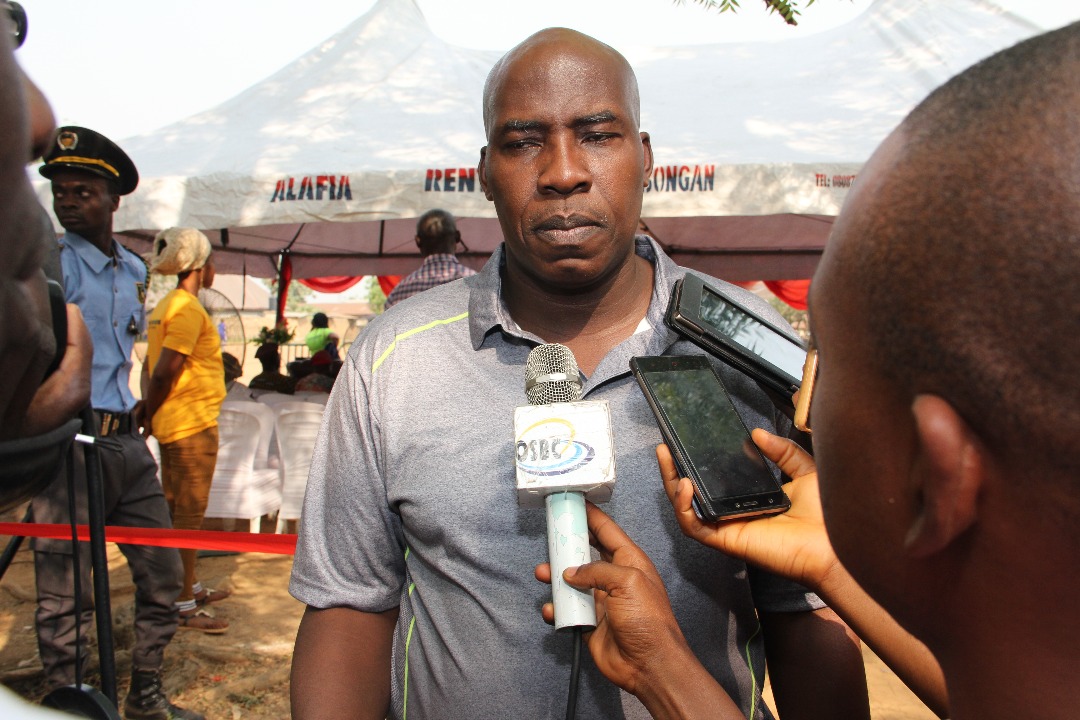Opinion
Ending SGBV And CEFM Is Collective Responsibility By Funmi Adekoya-Ojo

Sexual and Gender-Based Violence is any harmful act that is perpetrated against person’s will and that is based on socially ascribed differences between male and female. This include rape, domestic violence, sexual exploitation, trafficking in persons and harmful traditional practices.
According to data from the Nigerian National Population Commission, Gender Based Violence, as experienced by the Nigerian women throughout their lifetime from either their present husband, is reported as 19% for demonstrative or emotional violence, 14% for physical violence, and 5% for sexual abuse.
Also, Reports submitted by United Nations (UN) Human Rights Bodies gave a Prevalence Data on Different Forms of Violence against Women, to include; 22.3% women experience Lifetime Physical and/or Sexual Intimate Partner Violence, while 13.8% experience Physical and/or Sexual Intimate Partner Violence in the last 12 months. Child Marriage is 43.4%, Female Genital Mutilation/Cutting is 19.5%
Ending Sexual and Gender-Based Violence (SGBV) and Child Early and Forced Marriage (CEFM) is a complex and multifaceted task that requires collective efforts from individuals, communities, governments, and organizations.
However, identifying and addressing the underlying factors that contribute to SGBV, such as poverty, unequal power dynamics, and lack of access to resources and education, is key to mobilizing communities to actively address SGBV by organizing workshops, discussion forums, and events focused on raising awareness and promoting collective responsibility.
No wonder experts on Sexual and Gender Based Violence and Child Early and Forced Marriage are calling for collaborative effort to identify best practices and evidence-based approaches.
According to the Coordinator, Carefronting Nigeria, Dr. Maji Peterx, government at all levels should ensure implementation of policies against Sexual and Gender Based Violence.
He identified fostering international cooperation to combat cross-border Sexual and Gender Based Violence, human trafficking, and other forms of violence that impact vulnerable populations.
“What we are looking at is the mobilization of critical mass of people to buy into the idea that we are all in this together, the issue of Child Early and Forced Marriage (CEFM) and Sexual and Gender Based Violence (SGBV) is not a one-man thing is an everybody thing.
Dr. Peterx emphasized the need to advocate for and enforce comprehensive laws and policies that address SGBV, including laws against domestic violence, rape, and sexual harassment. Ensure that the legal system is sensitive to the needs of survivors and that perpetrators are held accountable.
He advocated policy towards achieving gender equality in all aspects of life, including education, employment, and decision-making roles. Challenge and dismantle patriarchal systems that perpetuate violence and discrimination
“Promote gender equality by engaging men and boys in discussions about challenging harmful masculinity stereotypes and promoting healthy, respectful attitudes towards women and girls. Encourage male allies to speak out against SGBV and take an active role in creating safe communities”.
The media must be responsible through reporting of SGBV cases by avoiding sensationalism and victim-blaming narratives. Utilizing media platforms to raise awareness and promote positive messages about respect, consent, and equality is very important.
“We must capitalized on the power of the media to give us this narrative that would raise awareness and consciousness. We at Civil Society must design a pattern for advocacy to get more people to see what we are saying, so that they will know that this SGBV and CEFM if we don’t deal with it, it will deal with us, and we can all work together to bring an end to it”.
Dr. Peterx added “I think many atimes, government look for short time solution to a long time problem. We need bills and policies to ensure that gender issue is a structural and systemic issue, so that when government is making policies, it would be a law that protect the lives of all.
“Although, government are signatory to Act, international convention, but do they implement and enforce? That’s why we want government to see to the implementation of treaty they are signatory to”.
While collaborating the opinion of Dr. Peterx, Program Manager, International Federation of Women Lawyers, FIDA Nigeria, Mr. Fikih Obaro highlighted some keys steps to end Sexual and Gender Based Violence, and Child Early and Forced Marriage.
“I think what is critical is behavioural change. Behavioural change is key towards ensuring that we have effective solution on SGBV and CEFM, and what that means is basically we need to go back to the root, we need to go back to the community, we need to sensitize person, we need to provide avenue where people can change their behaviour from being perpetrator or being abusive to being supporters structurally for survivors of Gender Based violence.
“So sensitisation is key to behavioural change, advocacy is key towards achieving behavioural change, there has to be concerted Advocacy from the grassroots down to upper echelons towards ensuring that we have a society that respond positively to sexual and Gender Based Violence”.
Mr. Obaro called for provision of accessible and survivor-centered support services, including counseling, medical care, legal aid, and safe shelter for survivors of SGBV. Encouraging survivors to come forward by reducing stigma, victim-blaming, and ensuring their safety during the reporting and investigation process.
“In terms of reintegration of survivors back to the society, Obaro said it is key that Nigeria has a victim protection approach and victim protection system whereby survivors of Sexual and Gender Based Violence are being reintegrated back into the society without fear of stigmatisation”.
“We need to create safe homes, we need to create effective shelter, we need to create safe avenues so that they can have succour and an enabling environment for them to be empowered and be gradually reintegrated back to the society “.
In his own contribution, Program Coordinator, Child and Youth Protection Foundation, Mr. Olatosimi Kolawole called on Civil Society Organizations to collaborate with government in the implementation and monitoring of policies on sexual and Gender Based violence.
“The first thing we need to do as CSO is to recognize that government have policies that addresses the issue of Sexual and Gender Based Violence, understand the provision of these policies and understand that we need to start advocating with government to have a budget head for the implementation”
“Implementation is key, and I know that CSOs can push for the implementation of these policies and monitoring the implementation of the policies. When this is done we will see that government policies are actually speaking to the yearning and aspirations of the people”.
Mr. Kolawole said CSOs should regularly evaluate the effectiveness of SGBV prevention and response initiatives and make necessary adjustments based on feedback and data.
He also advocated responsible reporting of SGBV cases by the media, avoiding sensationalism and victim-blaming narratives as well as
using media platforms to raise awareness and promote positive messages about respect, consent, and equality.
Remember, ending SGBV is an ongoing process that requires each person’s actions, no matter how small, to contribute to a safer and more equitable world.
-

 News4 days ago
News4 days agoBreaking: Edo Governor, Obaseki Increases Minimum Wage To N70,000
-

 News1 day ago
News1 day agoMay Day: Babayemi Praises Tinubu Over Salary Increments
-

 Opinion1 day ago
Opinion1 day ago…Of Osun Poly, WAEC, NECO, JAMB And Half-Baked Matriculated Products By Tope Abiola
-

 News5 days ago
News5 days agoUNIOSUN Alumni Body Pledges More Support For Alma Mater, Elects New NEC













